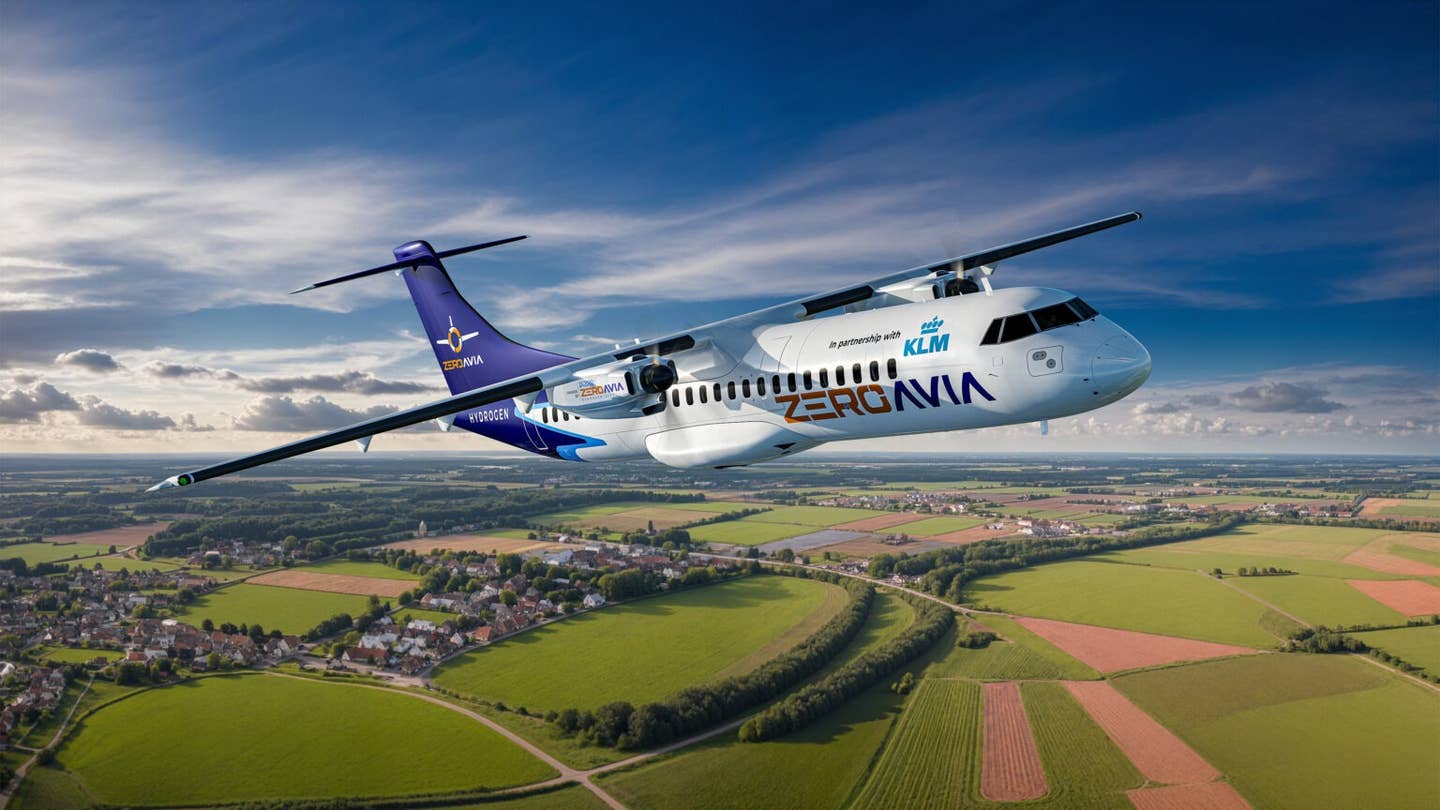Lilium Becomes First eVTOL Manufacturer with FAA, EASA Certification Bases
The FAA has issued a G-1 Certification Basis for the German air taxi firm’s seven-seater Lilium Jet.

A 3D rendering depicts Lilium’s seven-seater air taxi soaring over the Hudson River near the Statue of Liberty. [Courtesy: Lilium]
For a few years now, American electric vertical takeoff and landing (eVTOL) manufacturers Joby and Archer Aviation have stood alone at the top of the FAA’s air taxi certification totem pole. Now, a German rival is joining them.
A few months after Archer's Midnight and Joby's JAS4-1 earned FAA G-1 certification bases, clearing a path to full certification for the firms’ flagship aircraft, Munich-based Lilium received one of its own Monday. With the watershed approval, the seven-seater Lilium Jet is now the only air taxi with certification bases from both the FAA and the European Union Aviation Safety Agency (EASA).
Lilium is working primarily with EASA, from which it received its initial CRI-A01 certification basis in 2020. But it’s also one of the few eVTOL firms targeting dual certification with the FAA under the provisions of the Bilateral Aviation Safety Agreement between U.S. and EU aviation authorities.
At present, the company says it is on track to launch global operations under these approvals by late 2025.
“This is a major step towards our goal of achieving early certification of our aircraft in key markets to support a worldwide entry into service,” said Alastair McIntosh, chief technology officer at Lilium. “We are grateful to have found great partners on both sides of the pond to electrify the skies. As per FAA practice, there will now be a collaborative process where Lilium and EASA provide feedback to the FAA before the G-1 is issued for public consultation.”
Lilium’s eVTOL jet design has actually been in development for more than half a decade, with its first proof-of-concept flight coming in 2017, followed by a full-size prototype flight two years later. In 2021, the company unveiled the flagship seven-seater model it hopes to certify with the FAA and EASA, designed for six passengers and a pilot.
The Lilium Jet is a fixed-wing design powered by 36 small electric ducted fans embedded in the wings. Because it combines fixed wings with high disc loading, the aircraft sacrifices some hover efficiency for reduced noise and greatly improved cruise efficiency.
This is all intentional. At launch, Lilium envisions its air taxi ferrying passengers between towns and inner cities, traveling distances between 25 and 125 miles (21 and 108 nm) at up to 186 mph (161 knots). And because just 5 percent of its mission energy budget is expended during the hover phase, the aircraft will spend most of its time in winged cruise.
McIntosh delves into the more technical details in a 2021 blog post.
After obtaining its CRI-A01 from EASA in 2020, Lilium in April 2022 submitted a Means of Compliance proposal outlining how it will demonstrate the seven-seater’s compliance with the agency’s certification basis.
In a third-quarter 2022 update, Lilium reiterated it is on track for EU certification. More recently, it told investors it’s nearing an agreement with EASA on an official certification plan. Once the plan is ironed out, the final step would be a compliance demonstration with a type-conforming model, which the firm expects to take place in 2024.
Lilium should have the funding to get there. After raising close to $120 million in November, Lilium in April was reportedly in a financial pinch. But it was bailed out in May, when investors poured another $100 million into the company—with the potential for that amount to rise to $250 million. Once EASA type certification is secured, Lilium expects predelivery payments to pick up some of the slack.
The road to FAA type certification will likely be a bit more arduous. However, Lilium now has the ball rolling with two of the world’s largest aviation regulators—more than any other eVTOL manufacturer.
“Receiving the FAA G-1 demonstrates the Lilium Jet’s path to global acceptance by aerospace regulators and the expected start of global operations in late 2025 for the revolutionary Lilium Jet,” Klaus Roewe, Lilium CEO, said in a statement.
Roewe’s timeline is ambitious, given the FAA’s notoriously slow pace (Archer and Joby’s aircraft are still seeking approval). But the continued interest for Lilium Jets from airlines and aviation companies bodes well for the company’s eventual entry into service.

Subscribe to Our Newsletter
Get the latest FLYING stories delivered directly to your inbox






